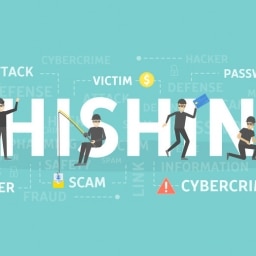Education Is The Key

Thanks to Covid-19 causing many schools to transition to online learning, children are spending even more time online than they normally would. While the internet can be a great tool for learning, it also has a dark side that parents should be aware of. Beyond the funny cat videos there are legitimate threats to children’s privacy and safety. Parents can also be at risk as well if children accidently expose them to threats without knowing.
Attackers on the internet know that children are often vulnerable targets because they lack cyber security awareness. Raising cyber awareness is not easy, even with adults, but it is a necessary endeavor in an ever-changing online world. It is up to parents to help protect their children and educate them on the dangers they may face online. In this blog, we will discuss some of the common internet threats and how parents can help their children avoid danger.
The Dangers Lurking on the Web

- “Zoom-bombing” is when a hacker hijacks a Zoom video conference. This is an attack that has picked up steam since the Covid-19 pandemic forced people into online schooling and work. Once in the meetings, actions have ranged from yelling personal details about teachers, spewing racist propaganda, and flashing pornography.
- Cyber Predators are always looking to exploit children and their increased time online raises their risk. They will often use fake profiles online to infiltrate a child’s circle of friends and gain their trust. That trust can then be used to manipulate children into physical meetings, sexual exploitation, or revealing private information.
- Online scams are capable of tricking adults, so it should go without saying that children are far more vulnerable. Many scammers like to use gaming platforms and groups to find easy targets. Due to the prevalence of microtransactions in games, scammers always have something of value to offer their victims. Children have been scammed out of real money in exchange for virtual currency and items in games. Scammers also use websites where they pretend to have some affiliation with the game to facilitate transactions. Sometimes links to these websites are spread through phishing emails. They might lure children in with things like special deals on Fortnite skins.
- Malware is also an ever-present threat. There are many ways that children can accidentally download malware. Several of the scamming methods mentioned above could be repurposed to distribute malware or accomplish both at the same time. Children could also download malware that was masquerading as a legitimate app or game download. This not just a threat on your child’s computer but also their phone and tablet.
What can you do to keep your child safe?
- Just like in the real world, children should be very cautious around strangers. They should never reveal private information to anyone that they do not personally know. Even if someone appears to know them, children should never agree to do anything a stranger asks them to do over the internet. Parents must be proactive in talking to their children about their interactions with people online and establish a line of trust, so they feel comfortable talking to their parents about it. With younger children especially, you should consider monitoring software to give yourself some control when your child is not being open with you.
- Teach your kids to never click strange links online or even to never click links at all without verifying they are safe first. Parents also must ensure that antivirus software is installed on the computers and laptops that children use.
- Parents should also make sure that children do not download anything that is not from an official verified source. They should not try to download a game from an ad they saw, in fact, they should not be clicking ads at all. Parents should not save their credit card information on their children’s devices to prevent them from being able to fall for scams online. It is still a good idea to teach them about scams and deals that are too good to be true. They should only buy game related items from the games official store. Third Party websites should not be trusted. For a more in-depth look at gamer safety, check out our previous blog here.
- Teachers also have a responsibility to protect their students during online meetings. Students and Teachers should not post links to meetings on social media. Online meetings should be private to prevent Zoom-bombing.
















